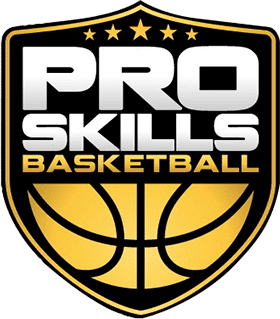
6 Challenges Kids Can Overcome in Youth Basketball
By: Brendan Winters, PSB Co-Founder and Former Professional Basketball Player
At Pro Skills Basketball, we use the acronym F.O.C.U.S. to guide how we teach life skills through the game. It stands for:
Fun, Overcome, Concentrate, Unity, Self-Improvement.
In this post, we’re diving into the “O” for Overcome—a life skill that youth basketball develops in real, meaningful ways.
While having fun is critical, basketball isn’t always fun—and that’s actually a good thing. The frustrations and failures kids face on the court are not just inevitable; they’re valuable.
Why Learning to Overcome Matters
Basketball teaches players how to overcome real challenges. Whether it’s losing games, not playing much, struggling with performance, or navigating coach and teammate dynamics—these are moments that build:
-
Resilience
-
Mental toughness
-
Emotional maturity
-
Problem-solving ability
These aren’t just basketball traits—they’re life traits.
Let’s walk through six common challenges in youth basketball and how they help kids grow on and off the court.
1. Losing Games
Reality:
Losing can be frustrating for players, parents, and coaches. Whether it’s a single tough game, a bad weekend, or a losing season, emotions can run high. But here’s the truth: losing is a part of life—in sports and beyond.
Solution:
Help kids view losses as learning opportunities. If we as adults stay calm, respectful, and focused on growth after losses, our kids will learn to do the same. Reacting with composure teaches players how to handle adversity in all areas of life.
2. Limited Playing Time
Reality:
Not every player gets equal minutes. This can lead to frustration and feelings of being overlooked.
Solution:
Use this moment to teach kids that earning opportunities is part of life. Encourage them to ask themselves: “What can I do to earn more playing time?” This shifts the mindset from blame to growth. Check out Logan’s blog on playing time for deeper advice.
Also, listen to what NBA coach Doc Rivers says about his own son’s playing time and how it shaped his development—it’s powerful perspective from both a coach and parent.
3. Poor Individual Performance
Reality:
Bad games happen. Missed shots, turnovers, mental mistakes—they’re all part of the game. But they can really shake a player’s confidence, especially young ones.
Solution:
Instead of letting frustration build, players should be taught to reflect:
“Am I working hard enough to reach my goals?”
“Do my actions match my expectations?”
Learning to assess effort, preparation, and mindset builds accountability—a skill that pays dividends for life.
4. Coaching Frustrations
Reality:
Players and parents often blame coaches for lack of playing time, poor team performance, or misaligned expectations. But the vast majority of youth coaches want their players to succeed and will play those who help the team the most.
Solution:
Rather than pointing fingers, help players ask, “How can I contribute in the way my coach needs?” Teach kids how to adjust, improve, and lead through effort. Encourage communication and clarity—not complaints.
5. Bad Referee Calls
Reality:
Youth basketball refs aren’t perfect. Missed calls and questionable decisions are part of every game—and always will be.
Solution:
The real lesson here? Control what you can control.
You can’t change a ref’s call, but you can control your reaction.
Model respectful behavior from the stands, and teach kids not to let refs throw them off. It’s a valuable mindset in sports and in life.
Bonus reality: The referee shortage in youth sports is real—largely due to poor treatment by parents and coaches. Let’s be part of the solution.
6. Teammate Conflicts
Reality:
Not every teammate is a best friend. Kids will sometimes clash with peers—on the court and off. But that doesn’t mean the team can’t function well.
Solution:
Use these moments to teach the importance of collaboration and mutual respect. Just like in the workplace later in life, kids will have to work with others they may not naturally get along with. That’s a real-world skill we can begin to teach now.
Helping Kids Overcome = Preparing Them for Life
Basketball is a vehicle for so much more than dribbling and scoring. It teaches kids how to:
-
Respond to failure
-
Take ownership of growth
-
Stay composed in chaos
-
Work through differences
-
Build resilience and grit
But kids can’t do it alone. As parents and coaches, it’s on us to guide them through these moments. The key is to see challenges not as problems, but as opportunities to teach life lessons.
Next up: the “C” in F.O.C.U.S.—Concentrate.
Stay tuned!
Ready to take the next step in your child’s basketball journey?
Pro Skills Basketball offers Club Teams, Camps, Clinics, and Academies in 25+ cities across the U.S.
👉 Find your city and sign up today to join a program focused on real development, experienced coaches, and a culture that puts players first.
📩 Contact us at admin@proskillsbasketball.com
📞 Call us at 866-996-3888


 LESSONS LEARNED FROM PLAYING BASKETBALL
LESSONS LEARNED FROM PLAYING BASKETBALL »
»